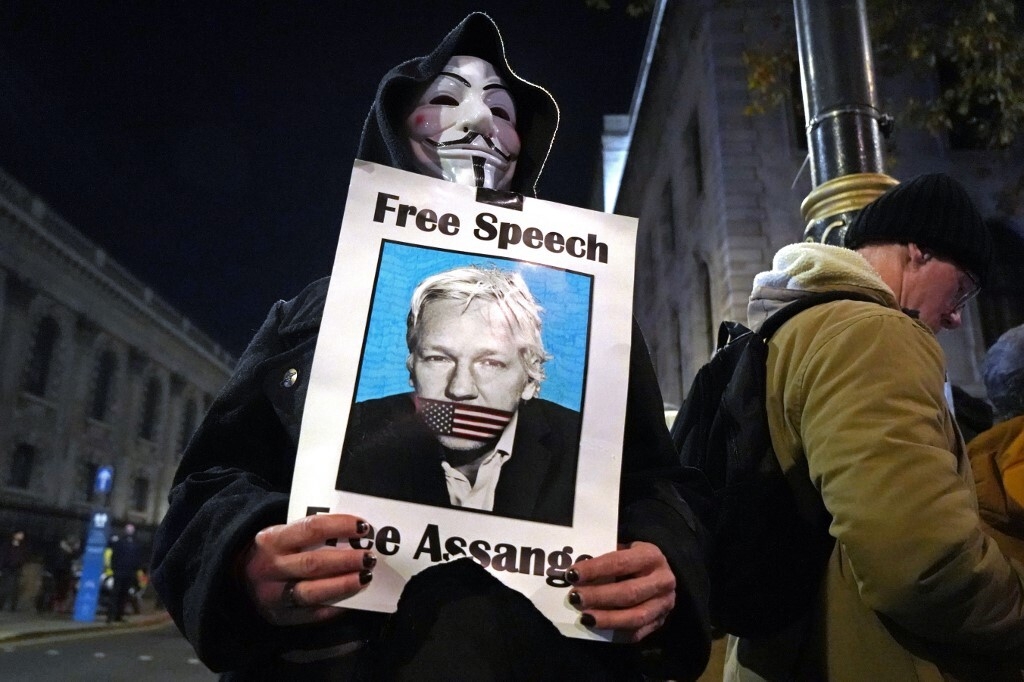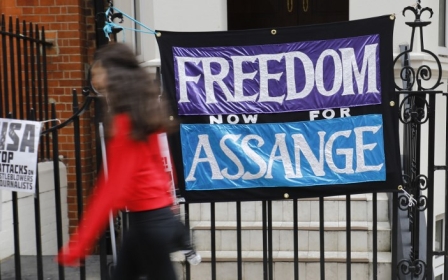Julian Assange should not be extradited to US, UK court rules

A UK court has ruled that Wikileaks founder Julian Assange should not be extradited to the United States on espionage charges for publishing hundreds of thousands of secret documents online.
District Judge Vanessa Baraister blocked the request on the grounds that the US prison system would not stop him from committing suicide in detention.
"I am satisfied that, in these harsh conditions, Mr Assange's mental health would deteriorate causing him to commit suicide with the 'single-minded determination' of his autism spectrum disorder," Baraister said in her written judgement on Monday.
Baraister acknowledged that Assange had violated the UK Official Secrets Act, and that his actions in 2010 "took him outside any role of investigative journalism", but added that she found "that the mental condition of Mr Assange is such that it would be oppressive to extradite him to the United States of America".
Assange faces 18 charges in the United States relating to the 2010 release by Wikileaks of 500,000 secret files detailing the US military's activities in Afghanistan and Iraq.
If convicted, Assange could face up to 175 years in prison. It remains unclear whether US officials will appeal the decision.
Before the ruling, German and UN experts had expressed concern over the humanitarian impact of the possible extradition.
During the hearing before Monday's judgement, witnesses told the court that Assange's history of depression could make him a suicide risk if sent to a maximum-security prison in the United States.
Assange also suffers from a respiratory condition that makes him vulnerable to Covid-19, which has infected several inmates inside the Belmarsh prison where he has been held in the UK.
Key charges against Assange includes a plot to hack computers and conspiracy to obtain and disclose US national defence information.
The 49-year-old denied plotting with defence analyst Chelsea Manning - who was herself imprisoned for eight years over related charges - to crack an encrypted password on US Department of Defense computers.
He has also disputed allegations that Wikileaks' decision to disclose the unredacted leaks put US informants lives at risk.
Assange's lawyers have argued that the charges against him are political. The UN special rapporteur on torture Nils Melzer urged US President Donald Trump to pardon Assange.
"In pardoning Mr Assange, Mr President, you would send a clear message of justice, truth and humanity to the American people and to the world," he wrote in December.
"You would rehabilitate a courageous man who has suffered injustice, persecution and humiliation for more than a decade, simply for telling the truth."
In 2012, the Wikileaks founder sought asylum in Ecuador's embassy in London to avoid extradition to Sweden after he was accused of sexual assault by two women.
Assange was holed up in Ecuador's embassy for seven years. He has denied that the cases constituted sexual assault, with Sweden later closing the legal cases in 2017.
Ecuador, however, withdrew Assange's asylum after the election of right-wing President Lenin Moreno.
Middle East Eye propose une couverture et une analyse indépendantes et incomparables du Moyen-Orient, de l’Afrique du Nord et d’autres régions du monde. Pour en savoir plus sur la reprise de ce contenu et les frais qui s’appliquent, veuillez remplir ce formulaire [en anglais]. Pour en savoir plus sur MEE, cliquez ici [en anglais].




